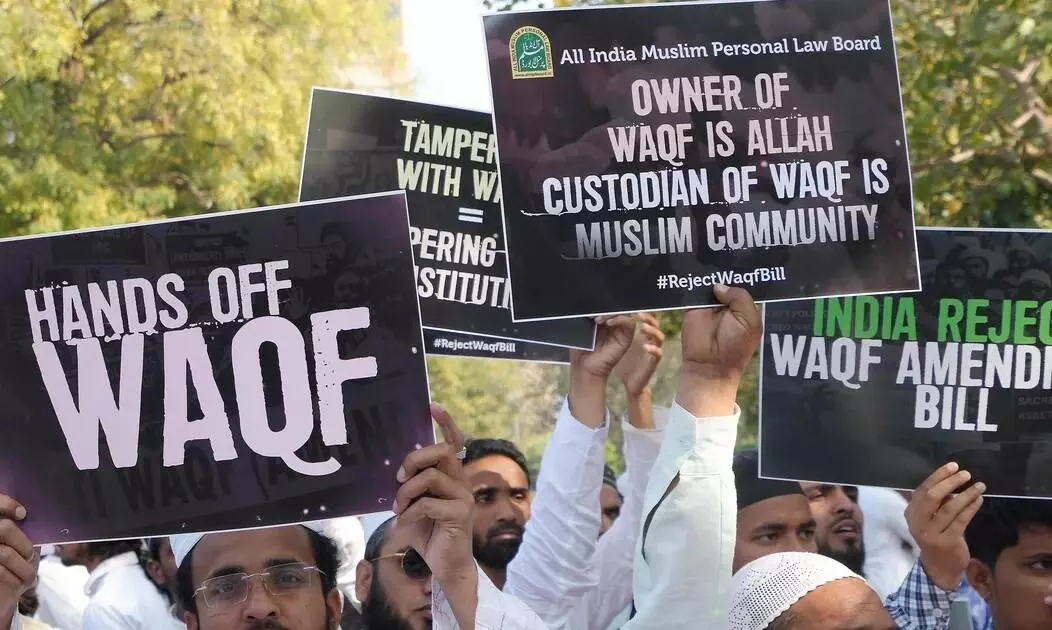
Revised Waqf Bill may impact over 73,000 disputed Waqf properties across the country
text_fieldsAs per the Waqf Assets Management System of India (WAMSI) records maintained by the Central government, more than 73,000 Waqf properties across the country are entangled in disputes, which are likely to be impacted by the provisions of the amended Waqf Bill that has been passed in both Houses of Parliament with a comfortable majority and is now awaiting the President’s assent to become law.
Spread across 30 states and Union Territories, India’s total Waqf asset count stands at 8.8 lakh, with a significant number facing legal or administrative challenges. The Waqf properties themselves are religious or charitable endowments set aside by Muslims and held in the name of God, even though their use may benefit individuals or institutions.
Uttar Pradesh accounts for the largest share of such properties at 2.4 lakh, followed by West Bengal, Punjab, Tamil Nadu, and Karnataka, while Bihar is the only other state apart from UP with separate Sunni and Shia Waqf boards.
The WAMSI database classifies disputed assets as encroached, alienated, or under litigation, with cases ranging from external civil suits to internal disputes within Waqf boards. Alienated properties are those alleged to have been transferred illegally, and encroachments often involve claims by government agencies, which under the new Bill may now be addressed by a tribunal consisting of a District Judge and a senior state official, according to The Indian Express report.
The Bill also modifies the framework for managing Waqf properties by altering the composition of state boards and redefining the role of state governments in dispute resolution. While it was referred to a Joint Committee of Parliament following opposition protests, the final draft reflected only the 14 amendments proposed by NDA MPs, with all 44 suggestions from the Opposition being rejected.
With more than two-thirds of Waqf properties comprising graveyards, agricultural land, mosques, shops, or houses, the implications of the Bill may be wide-ranging; graveyards alone account for 17.3% of the total.
The history of such disputes includes high-profile cases such as the Babri Masjid in Ayodhya, which was one of India’s most prominent Waqf properties and the subject of protracted legal proceedings before the Supreme Court settled the matter in 2019.






















